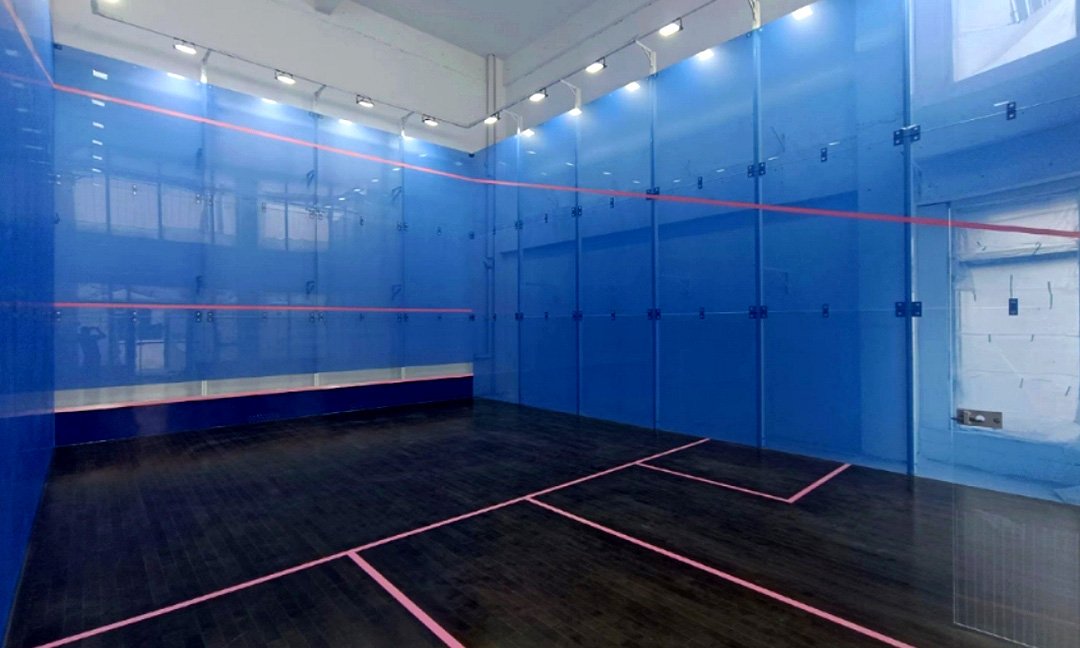




Glass Wall (12 mm safety glass)
Planning: Tempered glass panels require precise, specialist installation, and costs are usually higher. Many courts retrofit glass by bolting it to the existing front wall. Ensure that building access can accommodate large panels—even after completion—in case a replacement is needed due to breakage.
Acoustic Performance: Glass reflects and amplifies noise most of all. Sound levels inside are high (ball strikes are very loud), and sound can echo. The glass/air gap also can transmit noise to the outside. In short: expect high in-court noise and more disturbance to surrounding areas.
Ball Bounce Behavior: The bounce characteristics of glass walls differ noticeably from other wall types due to the structural flexibility of the panels. A squash glass wall consists of multiple 12 mm tempered glass panels, joined at the edges with fittings. While each glass panel is extremely rigid at the corners and along the edges, the centre area of each panel can flex slightly under impact—typically a few millimetres.
This means the ball rebound varies subtly depending on where the ball strikes the glass. Shots hitting close to a corner or panel joint experience a firmer, faster rebound. In contrast, balls hitting the centre of a panel may encounter slightly more flex, which can absorb some energy and affect rebound angle or height. The result is a generally consistent but not perfectly uniform bounce,
Maintenance & Durability: Exceptionally hard surface. Glass resists scratches and doesn’t wear out under ball impact. Ball marks and scuffs do not bind to glass, so cleaning is very easy. There’s virtually no fading or need for repainting—lines are typically screen‑printed. The main drawback is that any break or crack (rare if high-quality safety glass is used) means replacing the panel. In normal use, glass walls last for decades. Manufacturers usually provide a long warranty on the glass (e.g. 10+ years) reflecting this longevity.
LED Lights
LED lamps for efficiency, durability, and optimal illumination.
Maintain ≥500 lux lighting level for safe, quality play.
Use shatter-resistant or protected fixtures to prevent ball damage.
Frame-Supported Glass Back Walls
Frame-supported walls use structural frames—usually aluminum or steel profiles—instead of fins, offering space-efficient installation. Frames allow sealing gaps or adding panels above the standard back-wall height (2.13 m / 7 feet), improving climate control, sound isolation, and security.




